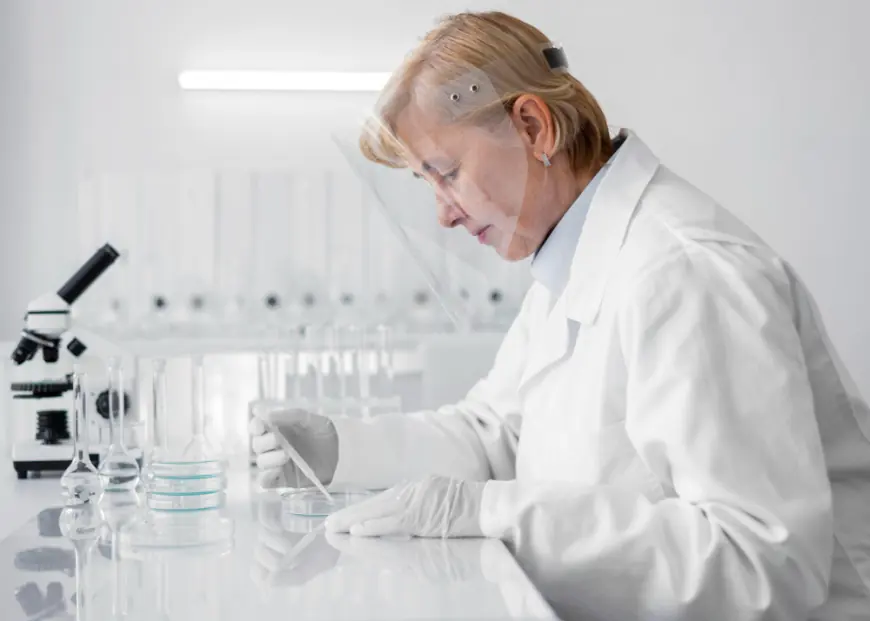Are Research Peptides Legal for Lab Use? Key Facts Explained
Discover the legal status of research peptides for laboratory use. Learn what makes them “for research only,” compliance rules, risks of unregulated suppliers, and how scientists can stay compliant when purchasing peptides.

If you’ve come across the term research peptides, you may be wondering: are they actually legal to use in a lab? The answer is yes — but with important conditions. Research peptides are compounds created for scientific and laboratory purposes only, not for human or veterinary use. Their legality depends on how they are purchased, stored, and applied. For scientists, compliance isn’t just about following the rules — it ensures the integrity of the research and protects against legal or safety risks.
What Are Research Peptides?
Peptides are short chains of amino acids, often referred to as the “building blocks” of proteins. They play key roles in cellular communication, healing, and metabolism.
Research peptides are synthetically manufactured peptides made specifically for laboratory studies. Unlike pharmaceutical-grade peptides used in approved medical treatments, research peptides:
-
Are labeled “for research use only.”
-
Are not FDA-approved for human or veterinary use.
-
Are sold exclusively for laboratory, educational, or preclinical studies.
This distinction is crucial. While peptides may hold therapeutic potential, research peptides exist only in the experimental stage and must not be marketed or consumed as medicine.
The Legal Status of Research Peptides
The legality of research peptides can seem complicated, but it comes down to purpose and use.
-
In the United States: Research peptides are legal if they are purchased and used for laboratory experiments. The FDA does not regulate them as drugs unless they are sold or marketed for human consumption.
-
In Europe and the UK: Similar rules apply — peptides are legal for lab use but restricted from consumer sales unless approved as medicines.
-
Other regions (Canada, Australia, Asia): Regulations vary, but the same principle holds true: peptides may be studied in labs but not sold for human or veterinary treatment without approval.
? Key Point: Legality depends on context. Using peptides in a lab is legal. Marketing or consuming them as supplements or therapies is not.
Why Are Research Peptides Labeled “Not for Human Use”?
If research peptides are similar to those studied for potential therapies, why the strict label?
The phrase “Not for Human Use” serves several purposes:
-
Legal protection – It ensures suppliers are not liable if someone misuses the compound.
-
Regulatory compliance – It separates experimental compounds from FDA-approved drugs.
-
Scientific integrity – It prevents misuse that could damage research credibility or lead to health risks.
This label is not just a disclaimer — it is a safeguard that protects both the supplier and the scientific community.
Risks of Buying from Unregulated Sources
With demand growing, a number of unverified online vendors now sell peptides. This poses risks:
-
Contamination or impurities – Unregulated products may not match the label.
-
Legal issues – Buying from vendors who mislabel products as “for human use” can bring regulatory penalties.
-
Reputation damage – Labs caught using non-compliant sources may lose funding or credibility.
Trustworthiness matters. Choosing a supplier that provides Certificates of Analysis (COA), batch testing, and clear labeling is essential to maintain compliance.
How Researchers Can Stay Compliant
To keep research both ethical and legal, scientists should:
-
Buy from licensed suppliers who clearly state products are for research use only.
-
Verify purity with COAs or independent testing.
-
Document purchases and usage for audits and IRB (Institutional Review Board) oversight.
-
Follow proper storage guidelines to preserve compound stability.
Compliance not only avoids penalties but also strengthens the credibility of the research itself.
Where to Buy Research Peptides Safely
Researchers should look for suppliers who meet high standards, including:
-
GMP (Good Manufacturing Practice) compliance
-
Transparent sourcing and testing protocols
-
Detailed labeling and safety data
-
Availability of third-party lab testing results
Working with reputable vendors ensures research materials are safe, legal, and scientifically reliable.
If you need peptides for research purpose visit Nextech Laboratories.
Conclusion
So, are research peptides legal for lab use? Yes — when purchased and applied strictly for laboratory studies.
-
They are not approved for human consumption and must be labeled accordingly.
-
Laws vary globally, but all emphasize the same rule: research use only.
-
Researchers should source peptides from trusted, compliant suppliers to protect both their work and their institutions.
By staying compliant and working with reputable providers, scientists can explore the exciting potential of peptides while ensuring their work remains ethical, legal, and credible.
What's Your Reaction?
 Like
0
Like
0
 Dislike
0
Dislike
0
 Love
0
Love
0
 Funny
0
Funny
0
 Angry
0
Angry
0
 Sad
0
Sad
0
 Wow
0
Wow
0
















































